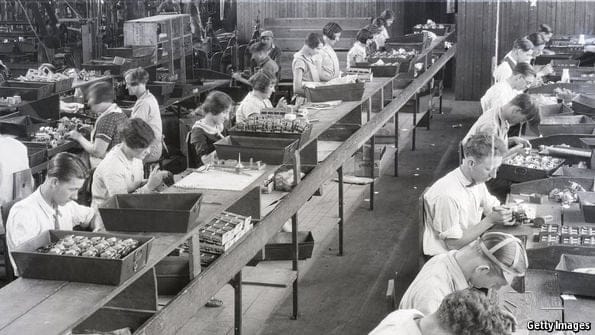Why old-fashioned manufacturing jobs won’t return to the West
Manufacturing is no longer about the production line

By S.W.
MANUFACTURING has a powerful hold over politicians and policymakers in the rich world. Donald Trump, among others, wants to bring the job of making things back to America from the low-cost countries to which it has emigrated. Manufacturing is worthy of political attention. Manufacturers are more likely to be exporters than other types of businesses and those tend to be more productive than non-exporting firms. But when politicians talk about manufacturing it tends to be in terms of the production line: assembling parts into cars, washing machines or aircraft, which adds less value than it once did. It is the processes that accompany assembly—design, supply-chain management, servicing—that today bring the value. Manufacturing, and jobs in manufacturing, have changed in ways that mean that the old jobs will never return to the rich world.
More from The Economist explains

What is a carry trade?
Borrowing cheaply to buy high-yielding assets is popular, but risky

The significance of liquid water on Mars
There could be an ocean’s worth deep underground

Why Russian troops are attacking on motorbikes
New conditions give rise to new tactics
What is “two-tier” policing?
The conspiratorial belief has spread online, fuelling disorder in Britain
Would legal doping change the Olympics?
The impact would be smaller—and worse—than proponents of drug-taking claim
Do vice-presidential picks matter?
If they have any effect on an election’s result, it is at the margins